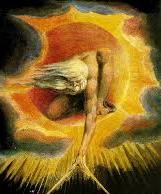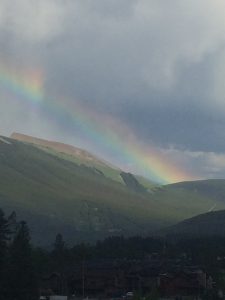Pen Pal Project
Faith and the Polar Vortex

February 24, 2015
Toronto, depths of winter
Dear Reva,
The deep freeze persists. Just leaving the house to get the groceries or do the after-school pick-up feels like a polar expedition. We are living in the Canada of Canadian Tire commercials, and of the American imagination. I have a friend who has built an igloo in her backyard.
February does, of course, offer the pleasure of huddling in your soon-to-be former home, organizing your taxes, working out the details of your separation agreement, and contemplating the remnants of your shattered domesticity, for those who enjoy such activities.
Perhaps I should mention, since we’re tackling some socially awkward topics this week, that February blues come in a rather dark shade for me. Depression and anxiety simply adore February. It is their favorite time of the year.
So. You want to talk about God.
As Marilla Cuthbert famously said (in the film version of Anne of Green Gables, though not the book): “To despair is to turn your back on God.” It is a bad idea to turn your back on someone before giving Him a good long look; I suppose that is why every person I’ve met (or read) who has struggled with depression has also struggled with the big existential questions.
For the record, I did grow up going to church, in a low-key Protestant congregation, but I’ve never been a believer. I’m not a great joiner, either, and I tend to get prickly when people tell me what to think. I’ve always preferred the crisp certainty of the visible, ‘rational’ world to the messy excesses of spirituality in all its forms.
Consequently, religion has played no role in my parenting. I have occasionally felt that this is a gap in my children’s education. So much of human history is about the clash of religious traditions that I sometimes wonder how my children will make sense of it all without any personal experience of religious life (other than holiday celebrations, carefully stripped of any sacred overtones).
In the past few years, I’ve become much more open to conversations about spirituality. Part of this shift is a function of life stage, I’m sure; we focus more intensely on these questions as we age. But I recognize, too, that the search for more meaningful and creative work has changed my approach to, and probably my expectations of, other aspects of my life.
Have you read Viktor Frankl’s book, Man’s Search For Meaning? I read it for the first time recently, and it is extraordinary. Frankl, a Jewish psychiatrist from Vienna, was sent to Auschwitz as a slave laborer, and survived. From that experience, Frankl developed a theory about how people can find meaning in life, even in the most desperate circumstances: through work, through love or through courage and dignity in the face of adversity. Frankl believed, based on his observations in the concentration camp, that this sense of meaning, of belief in something larger and more important than the present moment, was more essential to survival than food or medicine.

That’s a pretty strong vote for faith. And while I wouldn’t put myself in the mystical camp just yet, I’ve traveled a long way from where I started. Engaging your creativity will do that, as anyone who makes art will tell you. Art is hard work – I would never want to suggest otherwise – but creativity itself is mysterious and inexplicable, even to the artist. It is both within and yet somehow beyond our physical selves. In this sense it is a lot like love. Or even, dare I say it, like faith.
Yours,
Kate
Link to Reva’s last letter: http://www.revaseth.com/penpalproject/february-blues/



 Why do you think that is?
Why do you think that is?